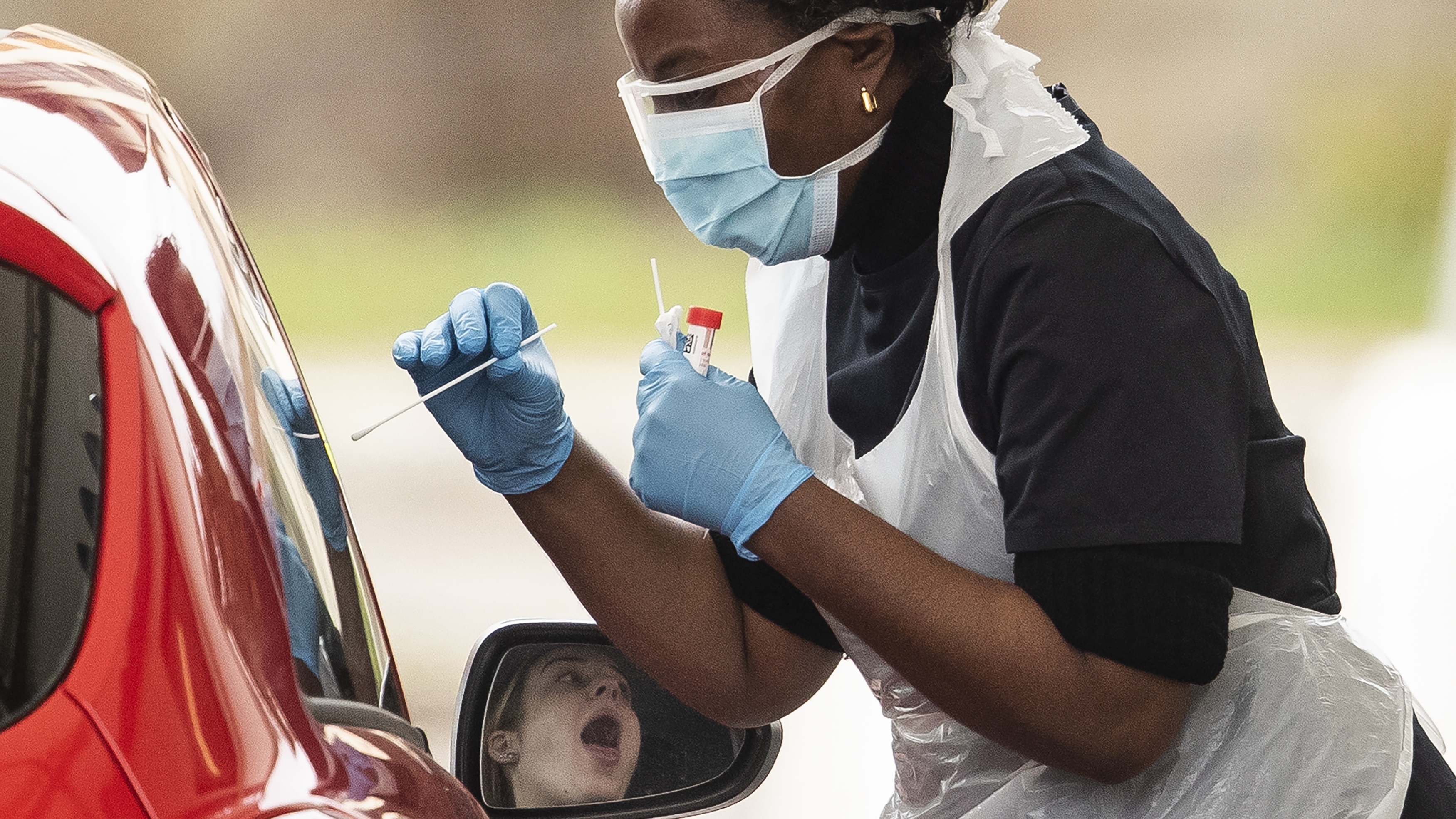Suspected Covid cases ‘three times higher’ than official figures at pandemic peak
New study also says BAME adults twice as likely to become infected than white counterparts

A free daily email with the biggest news stories of the day – and the best features from TheWeek.com
You are now subscribed
Your newsletter sign-up was successful
Suspected cases of coronavirus recorded by GPs at the height of the pandemic were three times higher than official figures, new research has found.
Analysis of data from 157 medical practices in east London reveals that a total of 8,985 suspected cases were recorded between 14 February and 30 April - triple the number of people found to be positive for Covid-19 at test centres during that period.
The research, led by a team from Queen Mary University in London, “also found that black, Asian and minority ethnic (BAME) adults were twice as likely to present with suspected coronavirus than white adults”, LBC reports.
The Week
Escape your echo chamber. Get the facts behind the news, plus analysis from multiple perspectives.

Sign up for The Week's Free Newsletters
From our morning news briefing to a weekly Good News Newsletter, get the best of The Week delivered directly to your inbox.
From our morning news briefing to a weekly Good News Newsletter, get the best of The Week delivered directly to your inbox.
Lead study author Dr Sally Hull said that the “results suggest that Covid-19 prevalence during the peak of the epidemic was higher than previously thought”.
“The official Covid-19 test statistics are likely to have under-represented the extent of the epidemic, as many people with Covid-19 would not have been tested, including those with milder symptoms or those who could not access testing centres,” she added.
Three of the four areas studied by Hull’s team had death rates in the top five for London boroughs, and 55% of the population in the researched areas were from ethnic minority groups.
The study, outlined in a newly published paper in the British Journal of General Practice, also found that dementia patients were seven times more likely to develop suspected coronavirus.
A free daily email with the biggest news stories of the day – and the best features from TheWeek.com
And “unlike other studies”, the research indicates that women have a slightly increased risk of becoming infected compared with men, says The Telegraph.
Across both sexes, while ethnic minority adults appeared to be twice as likely to catch Covid, “this was not necessarily due to other factors such as health conditions, obesity or social deprivation”, The Independent adds.
“The high prevalence among black, Asian and minority ethnic patients remains a big concern and we now know that ethnicity is still a risk factor even after you take account of social deprivation, long-term conditions and body mass index,” Hull said.
Joe Evans is the world news editor at TheWeek.co.uk. He joined the team in 2019 and held roles including deputy news editor and acting news editor before moving into his current position in early 2021. He is a regular panellist on The Week Unwrapped podcast, discussing politics and foreign affairs.
Before joining The Week, he worked as a freelance journalist covering the UK and Ireland for German newspapers and magazines. A series of features on Brexit and the Irish border got him nominated for the Hostwriter Prize in 2019. Prior to settling down in London, he lived and worked in Cambodia, where he ran communications for a non-governmental organisation and worked as a journalist covering Southeast Asia. He has a master’s degree in journalism from City, University of London, and before that studied English Literature at the University of Manchester.
-
 Quiz of The Week: 14 – 20 February
Quiz of The Week: 14 – 20 FebruaryQuiz Have you been paying attention to The Week’s news?
-
 The Week Unwrapped: Do the Freemasons have too much sway in the police force?
The Week Unwrapped: Do the Freemasons have too much sway in the police force?Podcast Plus, what does the growing popularity of prediction markets mean for the future? And why are UK film and TV workers struggling?
-
 Properties of the week: pretty thatched cottages
Properties of the week: pretty thatched cottagesThe Week Recommends Featuring homes in West Sussex, Dorset and Suffolk
-
 A Nipah virus outbreak in India has brought back Covid-era surveillance
A Nipah virus outbreak in India has brought back Covid-era surveillanceUnder the radar The disease can spread through animals and humans
-
 A real head scratcher: how scabies returned to the UK
A real head scratcher: how scabies returned to the UKThe Explainer The ‘Victorian-era’ condition is on the rise in the UK, and experts aren’t sure why
-
 How dangerous is the ‘K’ strain super-flu?
How dangerous is the ‘K’ strain super-flu?The Explainer Surge in cases of new variant H3N2 flu in UK and around the world
-
 Covid-19 mRNA vaccines could help fight cancer
Covid-19 mRNA vaccines could help fight cancerUnder the radar They boost the immune system
-
 The ‘menopause gold rush’
The ‘menopause gold rush’Under the Radar Women vulnerable to misinformation and marketing of ‘unregulated’ products
-
 The new Stratus Covid strain – and why it’s on the rise
The new Stratus Covid strain – and why it’s on the riseThe Explainer ‘No evidence’ new variant is more dangerous or that vaccines won’t work against it, say UK health experts
-
 RFK Jr. vaccine panel advises restricting MMRV shot
RFK Jr. vaccine panel advises restricting MMRV shotSpeed Read The committee voted to restrict access to a childhood vaccine against chickenpox
-
 RFK Jr. scraps Covid shots for pregnant women, kids
RFK Jr. scraps Covid shots for pregnant women, kidsSpeed Read The Health Secretary announced a policy change without informing CDC officials